COVID-19 myths
-
Covid-19 can be transmitted in any climate. Wherever you are, no matter what kind of climate, you have to practice personal hygiene, i.e., wash your hands often, cover your mouth when you sneeze or cough, and wear masks. And the most protected is the one who is vaccinated.
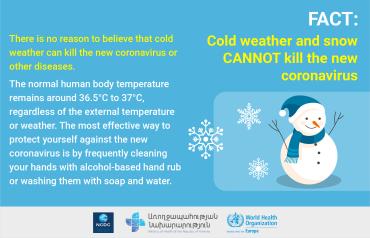
-
Fact: Neither vitamins nor mineral elements have an antiviral effect.
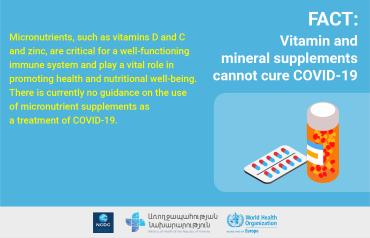
-
Garlic is a healthy food that may have some antimicrobial properties.
However, there is no evidence from the current outbreak that eating garlic has protected people from the new coronavirus.
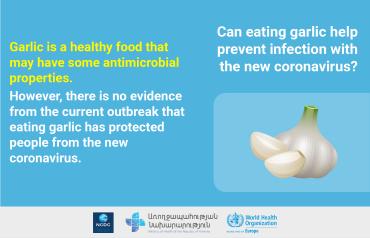
-
Alcohol, or more specifically, ethanol, possesses bactericidal and antiviral effects. In addition, if it has a density of 70-98 %, it can disinfect surfaces, hands, and instruments. When a person consumes an alcohol-containing liquid in huge quantities that can cause severe alcohol poisoning, it can only reach 5 g/liter in his blood, or 5 ppm. And that density is insufficient for antibacterial or antiviral effects.
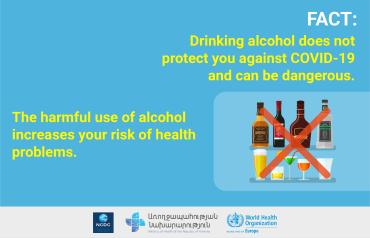
-
Fact: Neither antibiotics nor other antimicrobial agents have antiviral effects.
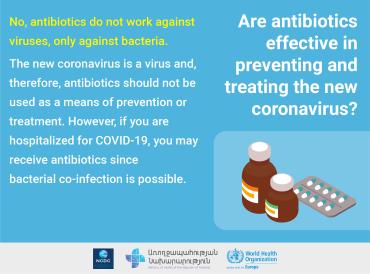
-
It may take the virus 1-14 days to incubate and cause symptoms like fever, so it cannot be used to identify asymptomatic patients. Furthermore, high fever is frequent in many other diseases, and COVID-19 is diagnosed if the PCR test is positive.
-
Besides not killing the virus inside your body, it could damage clothes and other tissues like eyes and lips.
-
Fact: At present, no drug can treat the disease. Therefore, patients should receive proper and supportive care to alleviate the symptoms.
-
Fact: Although it can last on surfaces for many hours, the environment, transportation, and varying temperatures during shipment make it difficult for the virus to remain active. However, if you feel the surface may be contaminated, clean it with a disinfectant and wash your hands after touching it.
-
Fact: There is no evidence that the novel coronavirus can be transmitted through mosquitoes. However, the virus can be spread through droplets from coughing, sneezing, or a patient’s saliva.
-
Fact: Besides showering every day, you should wash your clothes using detergent or soap in 60-90 °C water or add bleach. Then, dry the clothes in a high-temperature dryer or under the sun.

